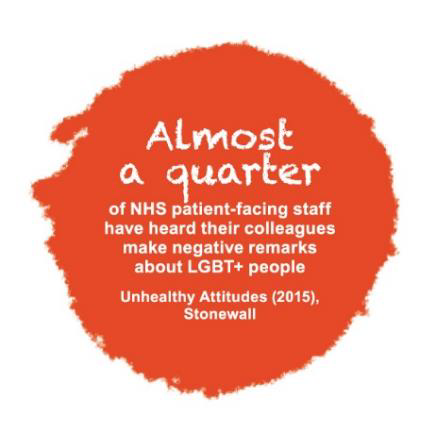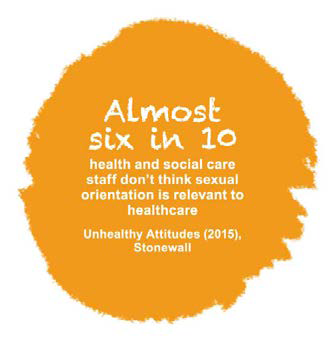Equality, diversity and inclusion
Rainbow badges
Rainbow badges national update - September 2019
The Rainbow Badges initiative gives staff a way to show that RBCH offers open, non-judgemental and inclusive care for children, young people and their families, who identify as LGBT+ (lesbian, gay, bisexual, transgender, the + simply means that we are inclusive of all identities, regardless of how people define themselves.)
Originally growing from a conversation and shared experiences between colleagues, the initiative aims to make a positive difference by promoting a message of inclusion.
Sounds good! What do I need to do?
Read all of the information on this page which gives an overview of the issues and why it's important for all healthcare staff to be aware of them. If you want to take part, sign up to receive an NHS Rainbow Badge to wear at work.
Why wear a Badge?
LGBT+ young people are often still exploring their own sense of self and identity. Despite improving social attitudes in general towards LGBT+ people in the UK, negative attitudes (such as homophobia, biphobia, transphobia) are still widely prevalent.
Mental health issues such as depression and anxiety are more common in young people who identify as LGBT+. Many young people still feel afraid to disclose their sexuality or gender identity and to 'come out' - being unable to do so often increases their risk of physical and mental health problems.
When accessing healthcare, LGBT+ young people can face inequalities. There are barriers to healthcare and services for young LGBT+ people. Research has shown that negative attitudes towards LGBT+ people are still common within the NHS. This means that LGBT+ young people can be reluctant to disclose their sexuality and/or gender identity to healthcare workers, which in turn can affect the quality of the care they receive.
We want to disprove attitudes like these...


A quarter of NHS staff have heard negative remarks about LGBT people 6 in 10 don't think sexual orientation is relevant to health care
Many young LGBT+ people say that they do not have an adult they can turn to or confide in. As advocates, people who work in healthcare can play a key role in making things better.
The Royal College of Paediatrics and Child Health (RCPCH) has recognised the important role of paediatricians and has embedded specific LGBT+ content within the Progress Curriculum.
Even the perception that discrimination might happen is enough to cause harm. Simple visible symbols, such as these rainbow badges, can make a big difference for those unsure of both themselves and of the reception they will receive if they disclose their sexuality and/or gender identity.
For an overview of the challenges young people can face in relation to sexuality and gender read Stonewall's Unhealthy Attitudes Report which includes a review of key research.
It's not just about wearing a badge, there are simple things we can all do to promote inclusion.
- Use inclusive language in all discussions
- Affirm the identity that a young person chooses to use
- Assure confidentiality.
You may be the first person a young person has ever felt confident enough to open up to about how they feel. For them, it may be one of the most important moments of their life, and how you respond to it is something they will remember.
What to do if a young person discloses to you
The Badges aren't designed as a symbol intended to prompt disclosures, but they may prompt a young person to disclose information about their own sexuality or gender identity, perhaps for the first time. Wearing the Badge doesn't mean you'll have all the answers but most importantly you should be prepared to listen and signpost to relevant information.
What to do if you feel you need to escalate a conversation?
Occasionally you may feel that a young person's disclosure means that they need more immediate support, or that they are at risk. There is always someone to ask for advice at RBCH.
You should always discuss any queries or concerns with the child or young person's named consultant in the first instance, or the consultant on call for that service. If this is not possible and further advice is needed, the consultant on service for general paediatrics can be contacted via switchboard to discuss how best to access further support.
If you are specifically worried that there is an immediate or serious risk to the young person's physical or mental health, then you should escalate to the Safeguarding team in line with normal Trust procedure.
For non-urgent queries, you can email the team behind the rainbow badges project at This email address is being protected from spambots. You need JavaScript enabled to view it..
Support
To pledge your support, you can email This email address is being protected from spambots. You need JavaScript enabled to view it..









